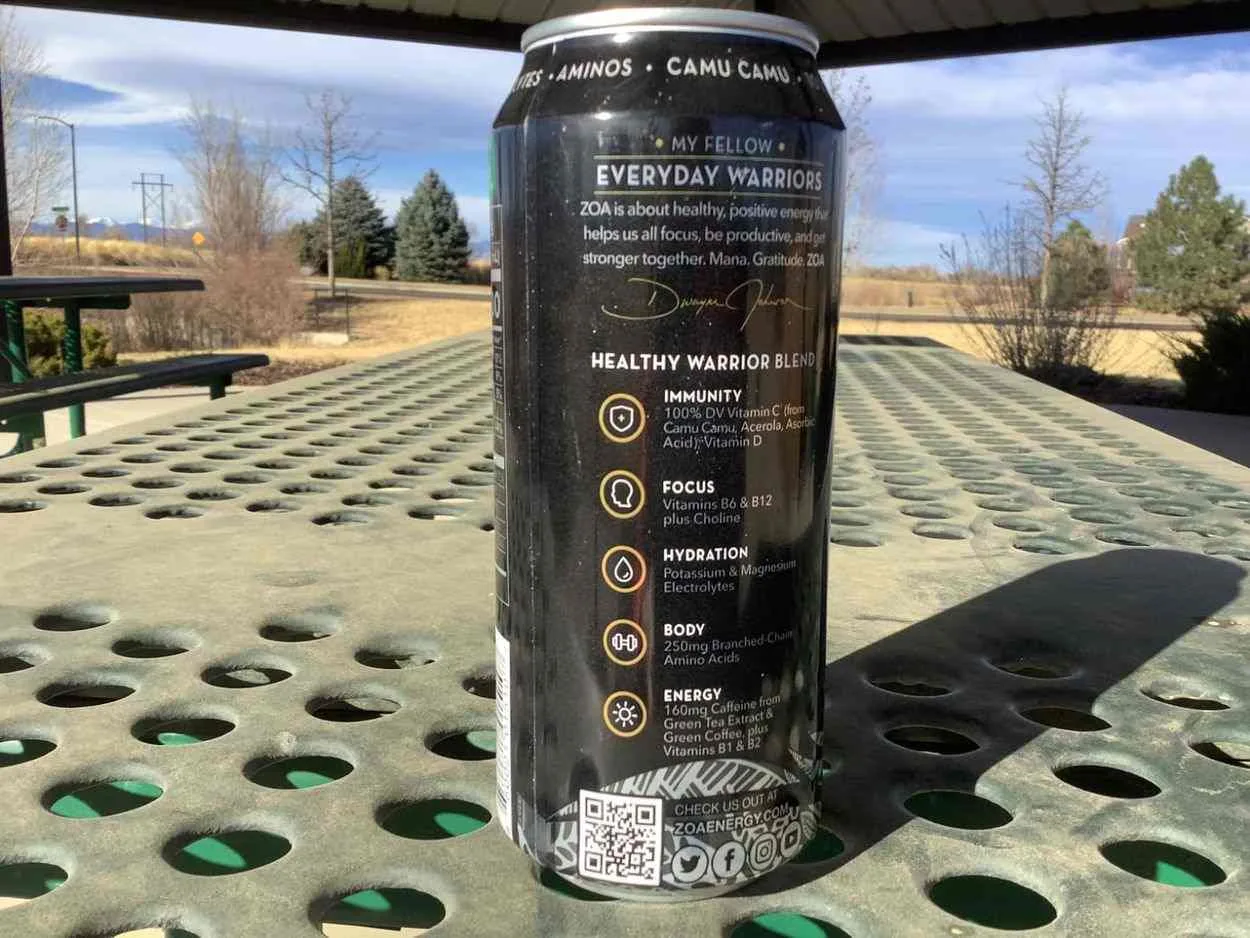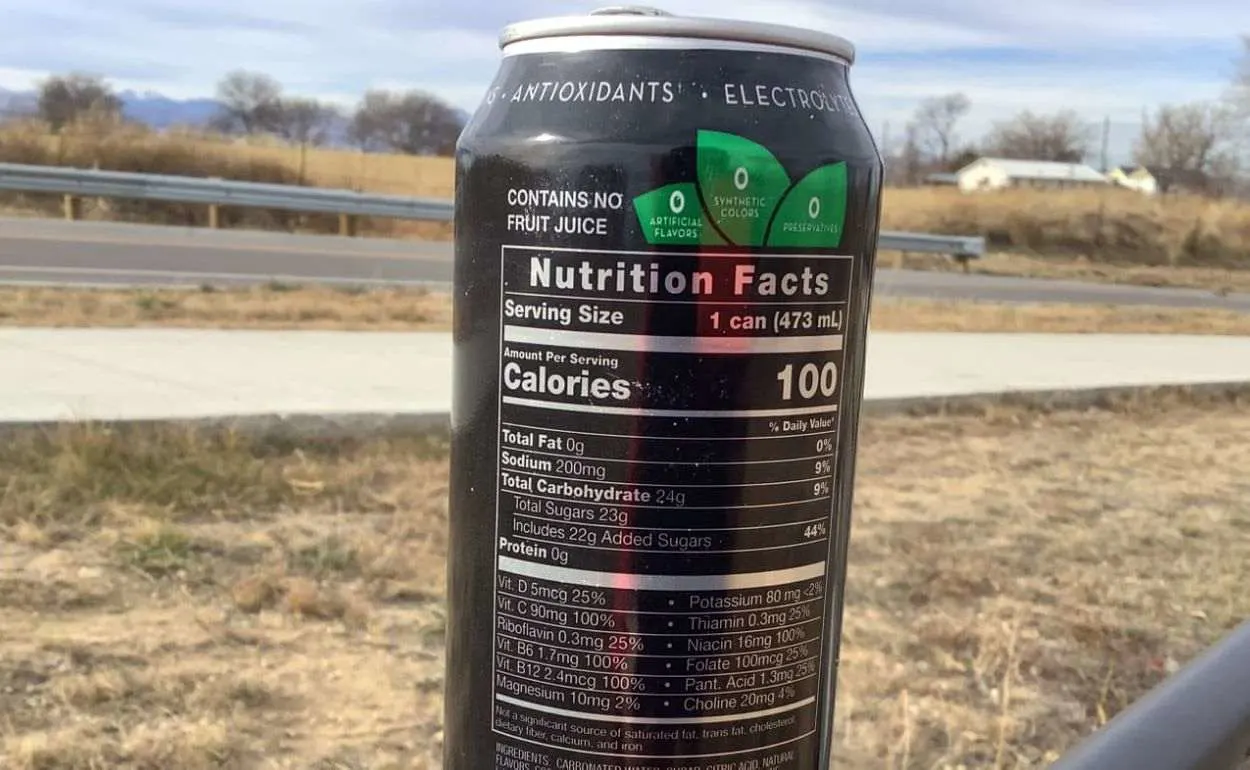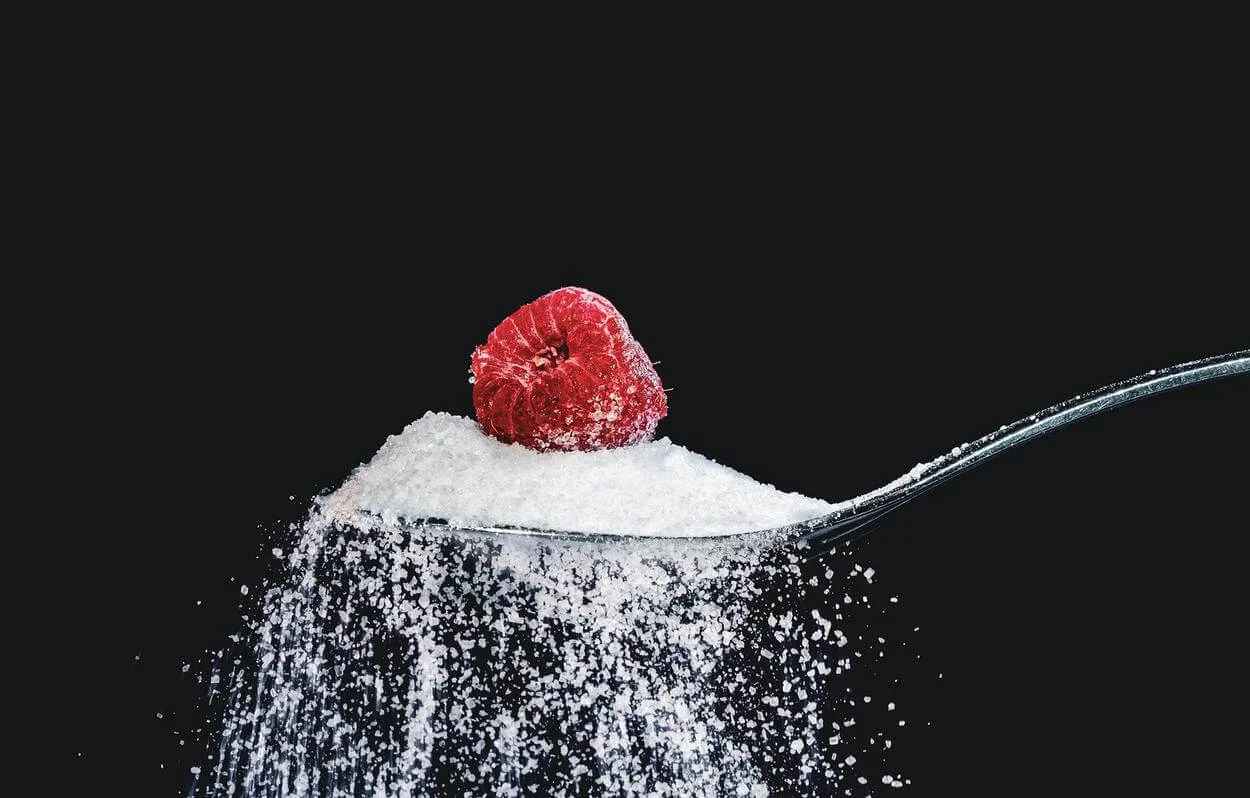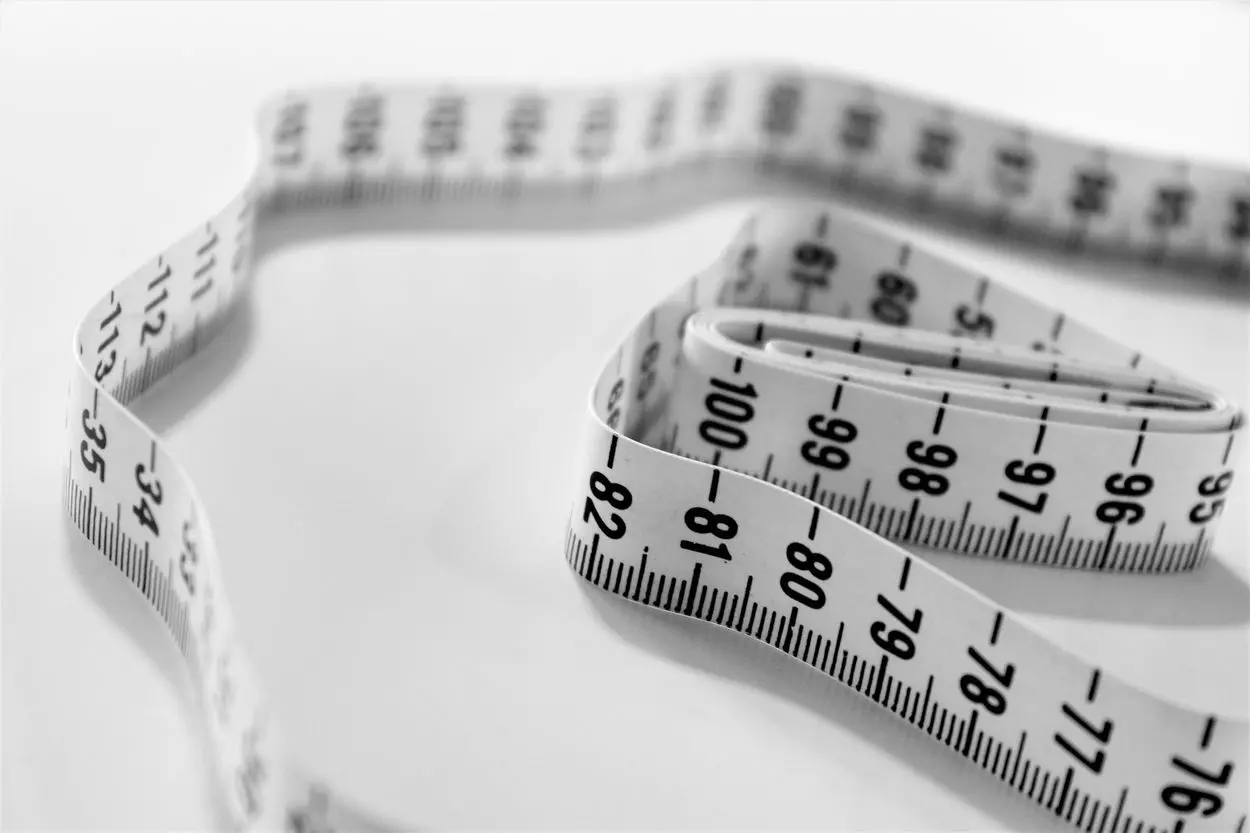Dwayne Johnson’s brand of energy drinks, Zoa Energy, is a relatively new competitor in the market and has been causing quite the buzz, especially among the fans, or as he likes to call them, ‘the warriors’, of The Rock.
As such, it was only a matter of time until this question popped up in Google searches:
“Is Zoa Energy bad for you?”
For those who’re in a hurry, here’s a quick and to the point answer:
And now your quest for answers has come to an end because yours truly is here with answers, facts, unbiased opinions, and more details.
Zoa Energy is a comparatively healthy energy drink and shouldn’t be bad for your health if you stick to one can of it per day, provided that you aren’t too sensitive to caffeine.
As for the reasoning behind the above statement, you will have to read the full article.
Are you with me? Good.
Let’s begin…
Contents
Brief Overview of Zoa Energy
Energy drinks are notorious for being unhealthy (with some exceptions, of course), some having very high sugar contents and a large number of calories, and others providing insomnia and headaches due to the significant amounts of caffeine in them.
Seeing this, Dwayne “The Rock” Johnson decided to work together with a few close partners to formulate his energy drink that would give his warriors sustained energy without the drawbacks.
The result was…Zoa Energy.
Zoa Energy has no sugar, negligibly few calories, and 160mg of caffeine in every 16 ounces can. It also contains a host of hand-picked ingredients that improve your immunity, help you stay hydrated, and focus on the grind.
Zoa Energy also comes in a 100 calories version, which contains a somewhat moderate amount of sugar and 100 calories, and it’s for those of you who prefer to have sugar in your energy drinks.
Now, onto the ingredients…
Zoa Energy’s Ingredients
Here are all the ingredients that go into making Zoa Energy:
- Carbonated Water
- Citric Acid
- Natural Flavors
- Sodium Citrate
- Amino Acids (including L-Leucine, L-Valine, L-Isoleucine, L-Glutamine, L-Arginine, L-Citrulline)
- Potassium Citrate
- Ascorbic Acid
- Niacinamide
- Calcium Pantothenate
- Pyridoxine Hydrochloride
- Thiamin Hydrochloride
- Riboflavin
- Folic Acid
- Cholecalciferol
- Cyanocobalamin
- Beta-Carotene Color
- Sucralose
- Acesulfame Potassium
- Natural Caffeine
- Magnesium Lactate
- Green Tea Extract
- Acerola Juice Powder
- Choline Bitartrate
- Camu Camu Extract
- Turmeric Extract

Whoa. This energy drink is loaded. It has Vitamin-B Complex, Vitamin C, and even Vitamin D, which is very rare in an energy drink.
Apart from the vitamins, it has electrolytes and BCAA’s, and these things keep you hydrated and support muscle recovery, so you can keep hitting the gym consistently.
According to The Rock, Zoa has “the best” immunity-boosting package in any energy drink because after getting Covid himself, he felt that his fans needed to stay strong and safe from the pandemic.
If you want a thorough analysis of the ingredients in Zoa Energy, I will be covering them in a future article, so I hope you look forward to it.
Nutritional Facts of Zoa Energy

Here are the nutritional facts of Zoa Energy:
| Nutrition | Amount per Serving |
| Calories | 15 |
| Total Fat | 0g |
| Sodium | 200mg |
| Total Carbohydrate | 3g |
| Total Sugars | 0g |
| Added Sugars | 0g |
| Protein | 0g |
| Vitamin D | 25mcg |
| Ascorbic Acid (Vitamin C) | 90mcg |
| Riboflavin (Vitamin B2) | 0.3mg |
| Pyridoxine (Vitamin B6) | 1.7mg |
| Cobalamin (Vitamin B12) | 2.4mcg |
| Magnesium | 10mg |
| Potassium | 80mg |
| Thiamin (Vitamin B1) | 0.3mg |
| Niacin (Vitamin B3) | 16mg |
| Folate (Vitamin B9) | 100mcg |
| Pantothenic Acid (Vitamin B5) | 1.3mg |
| Choline | 20mg |
Caffeine in Zoa Energy

Zoa Energy contains 160 milligrams of natural caffeine per 16 ounces.
The caffeine in Zoa Energy is very standard for its size. Energy drinks like Monster, Musashi, Rockstar, etc. that come in 16 oz. can also have this exact amount of caffeine in them.
A great thing about Zoa Energy is that it contains natural caffeine instead of the lab-made variety. This means that Zoa will give you long-lasting, sustained energy, which is better than the sudden spikes and plunges in energy levels that come with artificial caffeine.
160 milligrams isn’t necessarily a high amount of caffeine, and most people should be fine with this much, although it’s better if you try drinking half a can at first to see if you’re sensitive to caffeine.
In moderate amounts, caffeine can have amazing benefits, some of which are:
- Reduced fatigue
- Makes you more alert
- Increased focus
- Physical boost
- Increased metabolism due to thermogenesis
- Improves brain function
- Reduced risk of illnesses like Parkinson’s and Alzheimer’s, along with Type 2 Diabetes and certain types of cancer (Note that these are long-term benefits)
As I said, caffeine is only good when it is in a moderate quantity. The FDA recommends that we don’t consume more than 400mg of caffeine in a day, and ingesting more than that is risky.
If you overdose on caffeine, you might experience some of these side effects:
- Headaches
- Jitters
- Vomiting
- Nausea
- Diarrhea
- Anxiety
- Insomnia
- Frequent visits to the restroom
- Dependence
- Increased heart rate
- Dehydration
Therefore, it is in your best interest to keep a close eye on the amount of caffeine that goes into your body so that you can remain productive throughout the day.
Sugar In Zoa Energy

Zoa Energy is a sugar-free energy drink. However, the 100 Calories version of Zoa contains 23 grams of sugar and Stevia Extract.
Zoa Energy’s sugary version contains significantly less sugar than energy drinks of similar size, which is a massive plus for me. Here’s a quick comparison between Zoa Energy and some other brands:
| Brands | Sugar |
| Zoa Energy (100 Calories) | 23g |
| Monster Energy | 54g |
| Full Throttle | 55g |
Zoa makes up for the lack of sugar by using Stevia Extract, an almost zero-calorie sweetener made from the Stevia plant’s leaves.
Imagine a zero-sugar energy drink that comes in a sugary version, but even the sugary version isn’t super sugary.
But, while 23 grams isn’t very high, it’s still a large portion of a person’s recommended sugar intake.
The NHS recommends that men intake no more than 36g sugar, while women don’t consume more than 24g of sugar per day, and drinking more will make you susceptible to sugar crashes, which exhibit the following symptoms:
- Headaches
- Irritability
- Fatigue and difficulty concentrating
- Feeling jittery or anxious
- Feeling shaky or dizzy
- Hunger
- Bloating
Overconsuming sugar over long periods can lead to tooth decay, diabetes, obesity, and many other problems, so you must cut down on sugar if you drink a can of Zoa Energy 100 Calories.
Or you can simply cut out all the sugar-related risks and drink regular Zoa Energy, which contains zero sugar.
Artificial Sweeteners in Zoa Energy
Zoa Energy contains Sucralose and Acesulfame Potassium/Ace-K instead of sugar.
Both sweeteners are non-nutritive, zero-calorie sweeteners, which isn’t literally true, but the number of calories in these is so low that it might as well be zero.
There’s also the fact that both Sucralose and Acesulfame Potassium are several hundred times sweeter than sugar. So, only small amounts of them are required to sweeten a food or beverage.
What’s more, these two artificial sweeteners are considered safe by the FDA.
However, some studies show that artificial sweeteners could have adverse health effects in high doses, so it is better to avoid other artificially sweetened foods if Zoa Energy is part of your daily diet.
Calories in Zoa Energy

Zoa Energy has 15 calories in it, while Zoa Energy 100 Calories has, well, 100 calories in it.
Calories are the energy that the human body burns to stay up and run, so getting enough of them from your diet is important. On average, a person needs around 2000 calories in a day.
Any extra calories left unused will be stored as fats, which is the main contributor to weight loss. Some energy drinks contain up to 200 calories. Now, this isn’t a problem for active people, as they can probably burn off any excess calories that they consume.
The problem begins when a person has a sedentary lifestyle or is trying to stay in a caloric deficit to lose some weight. Low-calorie energy drinks like Zoa are the best option for such people.
15 calories per 16 ounces will barely make a dent in your diet, so you can subsume Zoa without worrying that it’ll make you gain weight. The caffeine in it might even help you with losing weight.
If you’re choosing the 100 Calories version of Zoa, you will have to do some light activity to burn off those calories, and since it has sugar in it, you will also have to reduce your sugar intake.
Does Zoa Energy have Alcohol?
Zoa Energy doesn’t have any alcohol in it.
No energy drink has alcohol in it because caffeine and alcohol have effects like night and day, water and oil, good and evil, Yin and Yang, you get the point, right?
Anyways, mixing energy drinks with alcohol has been becoming a prevalent trend lately, and frankly, it’s both dumb and to combine the two.
You see, caffeine is a stimulant while alcohol is a depressant, meaning that caffeine makes you alert and alcohol makes you intoxicated. If both are consumed together, you will become “wide-awake drunk,” and in such a state, you are highly likely to go overboard with alcohol consumption.
And wide-awake drunk people are also more likely to drive home themselves, which is a safety hazard not only to themselves but to others as well.
I’m not your mom, and I shouldn’t be telling you this, but please don’t mix energy drinks and alcohol for the sake of your safety.
Is Zoa Energy Bad For You?
Zoa Energy is not bad for you, especially if you stick to the sugar-free version.
The biggest concerns about an energy drink are its sugar, calorie, and caffeine contents. If it’s overly sugary, you’re going to get sugar crashes. If it has a lot of calories, you are bound to gain weight over time.
If it has a lot of caffeine, then you might feel instant side effects, especially if you’re caffeine sensitive.
Zoa Energy, however, has none of these problems. It’s sugar-free, has virtually no calories in it, and only has 160mg of caffeine, which may be high for caffeine-sensitive individuals, but there’s the option to split a 16 fl.oz can into two eight ounce servings, so they can drink one per serving per day.
But being ‘not bad’ isn’t all there is to Zoa Energy. Remember that it contains myriad other great ingredients from B-vitamins to BCAA’s and even electrolytes to keep you functioning at peak capacity for as long as possible.
Even the sugary version of Zoa has moderate sugar and calories in it, so you should be fine drinking it, as long as you keep a close watch on your sugar intake.
Zoa Energy Flavors
Both the regular and 100 Calories version of Zoa Energy come in five flavors, which are:
- Pineapple Coconut
- Lemon Lime
- Super Berry
- Wild Orange
- Original
The Original flavor has a unique taste due to its flavors of Camu-Camu berries and Acerola berries, so it’s bound to be a new experience for your taste buds. Be sure to check it out.
As for how all of the flavors taste, here’s a taste review:
Where to Buy Zoa Energy?
You can get Zoa Energy from its website as well as Amazon for $29.99 per 12-pack.
This translates to around $2.50 per can, which is a bit on the pricey side of things, but considering what it brings to the table, I’d say it is worth it.
You can also get Zoa Energy from stores, and the Zoa Energy website’s store locator is here to help you find a nearby store that sells it.
Alternatives to Zoa Energy
Is Zoa not the one for you? Fear not because there is a bunch of alternatives available. Here are some of them:
- Zipfizz (comes in powder form, has less caffeine, but is also filled to the brim with nutrients)
- Guru Organic Energy (All natural, organic energy drink with slightly higher caffeine levels)
- Celsius (Slightly higher caffeine, with no sugar and minimal calories)
- 28 Black (half in size as well as caffeine, is, therefore, easier to consume)
- MAW Energy (energy drink powder that is super affordable, sugar-free, and free of calories)
Conclusion
All in all, Zoa Energy is a pretty good energy drink that is probably a bit safer than many of its peers.
Not only it’s sugar-free and has almost no calories, but it also has natural caffeine. Along with Vitamins, electrolytes, minerals, and BCAA’s, all of which serve to make your life that extra bit easier by putting away the risky stuff, and giving you clean, sustained energy along with immunity.
So, grab a can of Zoa Energy and get to work finding the best version of yourself.
More Articles
- How Bad Is Bang Energy? (Truth Revealed)
- How Much Caffeine Is In G Fuel?
- Alani Nu Energy Drink Review (Detailed)
- How Much Caffeine Is In An Energy Drink? (FAQs)
